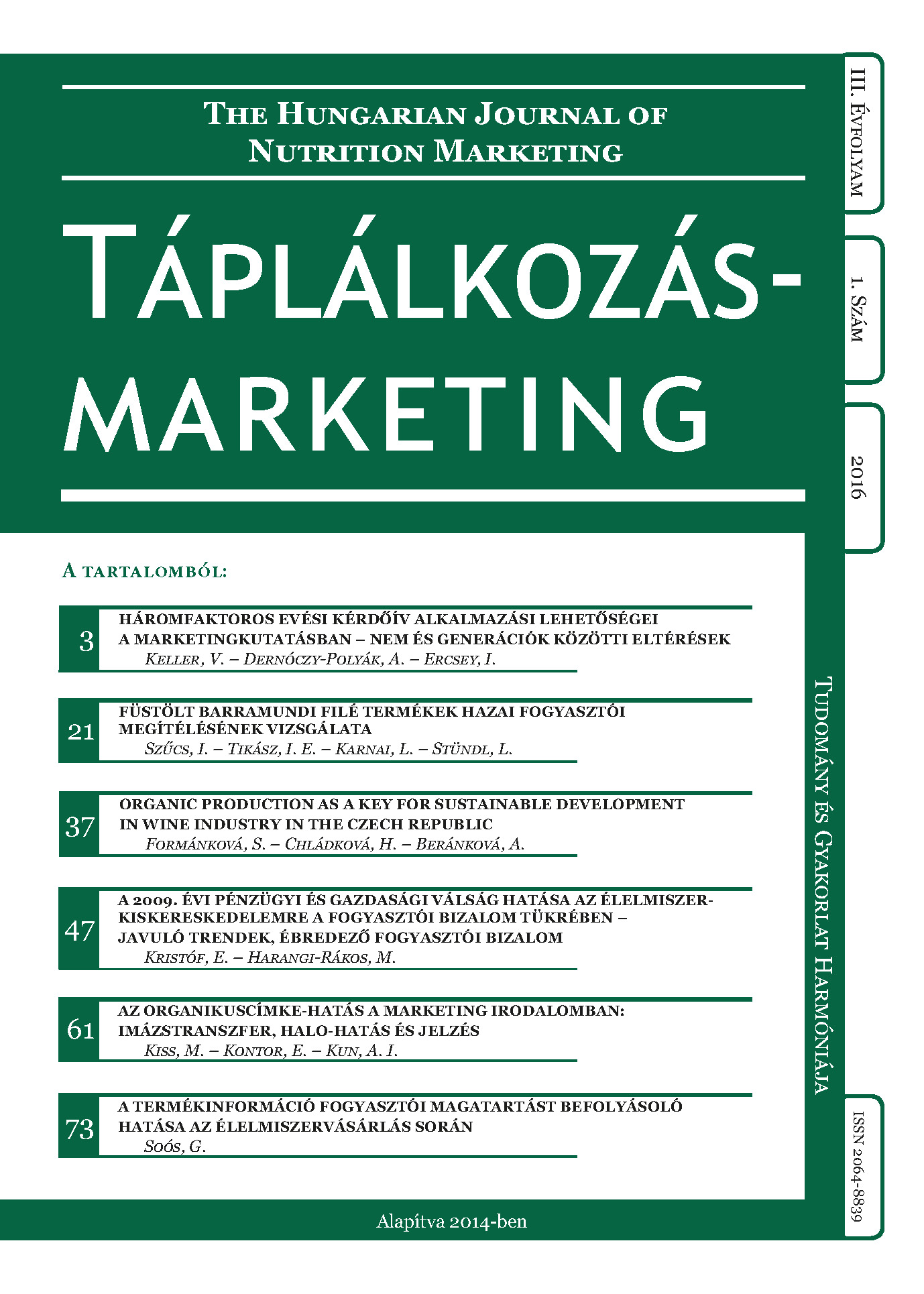Impact of the Financial and Economic Crisis of 2009 on the Hungarian Food Retail Sector in the Light of Consumer Confidence – Improving Trends, Increasing Consumer Confidence
Authors
View
Keywords
License

This work is licensed under a Creative Commons Attribution-NoDerivatives 4.0 International License.
How To Cite
Abstract
As a result of the international financial and economic crisis of 2009, Hungarian customers started to make informed purchasing decisions. Merchants recognizing this phenomenon formed their strategies accordingly, while trying to meet the requirements of the constantly changing government regulations. This strategy ensured primarily that they could maintain their position in trading, new consumer expansion was, however, limited. Limited because consumers have realized the situation, i.e. traders have been competing for their income and complex shop visiting has become widely common, implying the weekly tour of different shops in retail chains with an eye on the current promotions. Based on the data of the last eight years, the year most affected by the economic crisis was 2009 – which proved to be the deepest point. It has to be highlighted however that though signs of recovery are clearly visible, the volume of food retail returned to its growth path only in 2014, while sale increase in value has been continuous since 2008. This suggests that the impulses of the crisis starting in the fourth quarter of 2008 formed the domestic food trade for full six years. Also, this period was required to regenerate consumer trust. The more favourable prospects of the finances of both individuals and the economy encourage an increase of willingness to buy. The six-year period impacted by the crisis intensified concentration among trade stakeholders. The forecasts proved realistic, supermarkets have become more popular sites for shopping, although hypermarkets as strong competitors have been able to keep pace due to tailored promotions in the 6 trading days permitted by law until April 2016. Due to the massive social and political pressure the Government repealed the Act prohibiting work on Sundays in most retail shops with effect from 16 April 2016.
JEL code: M30 General


 https://doi.org/10.20494/TM/3/1/4
https://doi.org/10.20494/TM/3/1/4





